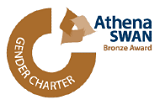

System Safety Engineering Short Courses
We offer professionals working in the field of System Safety the opportunity to attend a number of our postgraduate modules as individual short courses.
The aim is to allow individuals to renew, refresh and extend their understanding within specific fields, particularly the discipline of system safety engineering.
A principled approach
System safety engineering (SSE) can be viewed as a process of systematically analysing systems to evaluate risks, with the aim of influencing design in order to reduce risks, i.e. to produce safer products.
Our short courses provide a comprehensive grounding in the principles of system safety engineering. These principles are put into context using real-world examples from our extensive collaboration with industry in the UK and worldwide.
Our courses are well respected by systems safety engineering professionals. We have provided training for delegates from many different domains including military, automotive and railway, civil aerospace, nuclear, marine, energy and medical industries.
Our MSc in Safety Critical Systems Engineering is accredited by both the Institute of Engineering and Technology (IET) and the BCS (the Chartered Institute for IT), and can count towards the academic component for chartering.
Upgrade your short course study into a postgraduate award
Develop your understanding in a specific area by attending one or more of our short courses on a stand-alone basis.
Alternatively, attend multiple modules as part of your wider professional development. You can then choose to register for one of the following postgraduate courses:
- MSc in Safety Critical Systems Engineering
- Postgraduate Diploma in Safety Critical Systems Engineering
- Postgraduate Certificate in System Safety Engineering
If you take and pass the assessment of one of our SCSE short courses, your results can count towards the completion of a Masters, Diploma or Certificate award. You should apply for your Masters, Diploma or Certificate award after taking no more than 40 credits of modules. All components of your chosen postgraduate award, including modules taken as SCSE short courses, must be taken within a five year time period.
Please note that different combinations of core and optional modules make up the different postgraduate awards that we offer. Details of this are provided in the table in the "Upcoming courses and start dates" section below. If you would like further guidance on this contact cs-safety-courses@york.ac.uk.
Upcoming courses and start dates
We offer short course modules in System Safety Engineering. Teaching for each module is delivered in a blended format with self-study materials released online and three days of face-to-face teaching in York, enabling you to learn alongside your work as you bring your skills fully up to date.
| Modules | 2024/25 |
|---|---|
| Foundations of System Safety Engineering (FSSE) |
Registration closed - this course is now full. Please email cs-safety-courses@york.ac.uk if you would like to be placed on the waiting list. Preparatory materials released: 13/09/2024 Face-to-face teaching: 24/09/2024 - 26/09/2024 |
| Hazard and Risk Assessment (HRAS) |
Registration closes: 11/10/2024 Preparatory materials released: 25/10/2024 Face-to-face teaching: 05/11/2024 - 07/11/2024 |
| Safety Case Development and Review (SCDR) |
Registration closes: 15/11/2024 Preparatory materials released: 29/11/2024 Face-to-face teaching: 10/12/2024 - 12/12/2024 |
| System Safety Assessment (SSAS) |
Registration closes: 10/01/2025 Preparatory materials released: 24/01/2025 Face-to-face teaching: 04/02/2025 - 06/02/2025 |
|
Registration closes: 07/02/2025 Preparatory materials released: 21/02/2025 Face-to-face teaching: 04/03/2025 - 06/03/2025 |
|
| Human Factors for Safety (HUFS) |
Registration closes: 07/03/2025 Preparatory materials released: 21/03/2025 Face-to-face teaching: 01/04/2025 - 03/04/2025 |
| Robotic and Autonomous Systems Safety (RASS) |
Registration closes: 04/04/2025 Preparatory materials released: 17/04/2025 Face-to-face teaching: 29/04/2025 - 01/05/2025 |
| Security for Safety-Critical Systems (SESA) |
Registration closes: 25/04/2025 Preparatory materials released: 09/05/2025 Face-to-face teaching: 20/05/2025 - 22/05/2025 |
These short courses also form the core or optional modules on our MSc/Postgraduate Diploma in Safety Critical Systems Engineering and Postgraduate Certificate in System Safety Engineering.
If you think that you may wish to enrol for one of these postgraduate awards, then you will need to ensure that you have taken - or plan to take - the requisite 'core' modules, as shown in the table above. You will also need to choose one of more of the optional modules as indicated in the 'Course Content' section of each course page.
Notes
The dates for each course may be subject to change. For confirmation, please contact our Admissions Team at cs-safety-courses@york.ac.uk.
Please note that modules may be cancelled if there are insufficient numbers registered on the course.
How our courses are taught
During the 2024/25 academic year modules will be taught in a blended format. There will be three days of face-to-face teaching in York, taking place on Tuesday to Thursday of the teaching week. In addition students will be provided with self-study materials totalling some 10 - 15 hours of study time. These will be split between work to be completed before the in-York sessions and materials to be studied afterwards.
Following the taught element, students have an opportunity to complete an assessment. The assessment is compulsory for students who require the module to be credited towards a degree award.
Suitability
Our short courses are suitable for safety engineers wishing to renew, refresh and extend their knowledge in the area of system safety and embedded control systems.
The courses present many of the ideas of classical safety engineering, as well as explicitly dealing with new issues raised by the widespread use of computers in safety related applications.
Our courses aim to provide participants with:
- A thorough grounding and practical experience in the use of state-of-the-art techniques for design and development, verification and validation of safety critical systems, with an emphasis on the software used in such systems;
- Understanding of the principles behind these techniques so that they can make sound judgements during the design and deployment of such a system;
- A flexible course structure which is suitable both for full-time and part-time students and for industrial clients who wish to attend a short, intensive course on a particular aspect of safety critical system technology.
Learning outcomes and assessment
We aim to equip students with knowledge, understanding and practical application of the essential components of safety critical systems engineering, which will complement previously gained knowledge and skills in Computer Science.
We focus on the understanding of the principles behind these techniques so that professionals can make sound engineering judgements during the design and deployment of safety systems, particularly when software is involved.
Each course ends with an optional assessed exercise that is undertaken away from the University over 5 weeks following the taught element of the module. Each assessment takes approximately 65 hours in addition to the scheduled teaching time, of which we estimate students spend 30 hours undertaking private study plus 35 hours writing up the assessment. All assessed exercises are open (so you won't take an exam in supervised conditions), and comprise a report, case study, or documented piece of software. The assessed exercises can be completed on or off site.
Fees
For courses in the 2024/25 academic year (starting September 2024), the fee for each short course is £2,100.
Fees are payable in advance and include all relevant course materials, tuition and assessments. For short courses where the teaching takes place on campus, students must organise and pay for their own accommodation and travel. These costs are not included in the course fee.
Students who attend any short course(s), and subsequently choose to undertake a full MSc, Certificate or Diploma, will be entitled to some credit of the fees already paid, which can be used towards the cost of the full award. The credit a student is entitled to is calculated as follows:
| Module | Credit % of the fees already paid |
|---|---|
| 1st module | 85% |
| 2nd module | 75% |
| 3rd module | 70% |
| 4th module | 70% |
You should apply for the MSc, Diploma or Certificate after taking no more than 40 credits of modules. All components of your chosen postgraduate award, including modules taken as SCSE short courses, must be taken within a five year time period.
We reserve the right to amend published information.
Booking conditions
Booking Conditions
- Acceptance onto a short course is at the agreement of the course leader. They will want to assure themselves that you have the relevant level of background knowledge. You may therefore be asked to provide a CV detailing your knowledge / experience in particular areas.
- Course fees quoted include all relevant course materials, tuition and examinations, lunch and refreshments.
- A completed booking form with Purchase Order or payment is required no later than one month before the course starts, or immediately for bookings made within one month of the beginning of the course.
- Fees are payable to The University of York.
- Payment can also be made by credit or debit card.
Cancellations
We regret that a fee must be charged when confirmed bookings are cancelled or transferred to future dates. In the event of a cancellation, you may nominate a substitute
(acceptance of this substitution is subject to academic and availability conditions). If a suitable substitute cannot be found the following scale of charges will apply:
- 56 days or more before the programme starts ‐ full refund
- 55 days or less ‐ 50% refund
- 28 days or less ‐ 25% refund
- 14 days or less ‐ no refund
Transfers to a degree bearing course
Students who attend any short course(s), and subsequently choose to undertake a full MSc, Certificate or Diploma, will be entitled to some credit of the fees already paid, which can be used towards the cost of the full award. The credit a student is entitled to is calculated as follows:
| Module | Credit % of the fees already paid |
|---|---|
| 1st module | 85% |
| 2nd module | 75% |
| 3rd module | 70% |
| 4th module | 70% |
You should apply for your chosen postgraduate award after taking no more than 40 credits of modules. All components, including modules taken as SCSE short courses, must be taken within a five year time period.
We reserve the right to amend published information.
Book your place
Before you make your booking, please ensure that you have read our Booking Conditions.
Enrolling on your course
Please complete the CPD Booking Form and return it to cs-safety-courses@york.ac.uk. Once this form has been processed, you will be able to use to access your student record. Please include your name in the 'subject' of your email.
Paying for your course
If your employer will be paying for your training and you would like us to raise an invoice, please complete the CPD Payment Form and return it to cs-safety-courses@york.ac.uk. Please include your name in the 'subject' of your email.
If you wish to pay by credit or debit card, click the 'pay online' button and select your course from the list of those that are currently open for booking:
Contact us
For an informal discussion about our courses, contact Dr Richard Hawkins (SCSE Programme Lead/Admissions Tutor)
+44 (0)1904 325412
